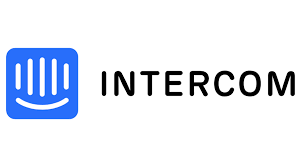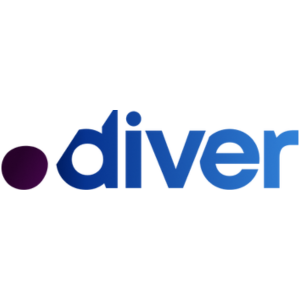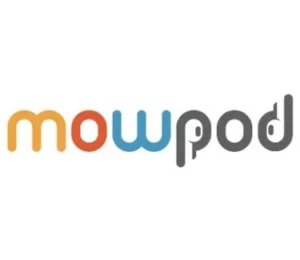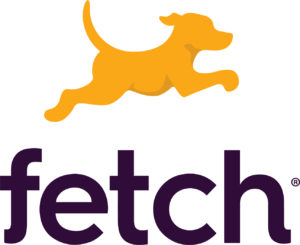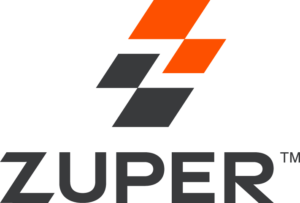LISTEN IN A POD APP
Filters
Yuval Ben-Itzhak | Socialbakers
How to use technology to build an influencer list — Yuval Ben-Itzhak // Socialbakers
Today we're going to discuss the strategy and tactics behind running an effective influencer marketing campaign. Joining us is Yuval Ben-Itzhak, the CEO at Socialbakers, which is a social media marketing platform that helps marketers to understand their audience, create compelling content, and to measure the performance of those campaigns across multiple social channels. In…
Play PodcastGlenn Gaudet | GaggleAMP
Career pathing from a Bootstrapped B2B SAAS company founder — Glenn Gaudet — GaggleAMP
Today we're going to learn about the skills accumulated and the lessons learned from a great marketer throughout the various stops on his career. Joining us for Career Day is Glenn Gaudet, who is the CEO of GaggleAMP, which is a platform that empowers companies to tap into their employees, partners, and resellers to digitally…
Play PodcastAJ Wilcox | B2Linked
Optimizing & Scaling LinkedIn Ads (Hypothetical Case Study)– AJ Wilcox // B2Linked
Today we discuss using a social channel that is critical to building your business and your personal brand - LinkedIn. Joining us is AJ Wilcox, who is the founder of B2Linked, which is an agency that specializes in account management and consulting with LinkedIn ads. In part 2 of our conversation, AJ Wilcox is going…
Play PodcastAJ Wilcox | B2Linked
Are LinkedIn Organic or Paid Ads better for your Brand?
Today we discuss using a social channel that is critical to building your business and your personal brand: LinkedIn. Joining us is AJ Wilcox, Founder of B2Linked, which is an agency that specializes in account management and consulting with LinkedIn ads. In part 1 of our conversation, AJ tells us how to evaluate if LinkedIn…
Play PodcastMike Orr | Grapevine 6
Building a personal brand through 3rd party content syndication — Mike Orr // Grapevine 6
Today we discuss using content to improve your pipeline efficiency. Joining us is Mike Orr, the Founder of Grapevine 6, which is a content engagement platform that accelerates your sales and marketing by using artificial intelligence. In part 2 of our conversation, Mike is going to tell us how you can build a personal brand…
Play PodcastMike Orr | Grapevine 6
Why Sharing 3rd Party Content Impacts Your Bottom Line
Today we discuss using content to improve your pipeline efficiency. Joining us is Mike Orr, Founder of Grapevine6, which is a content engagement platform that accelerates your sales and marketing by using artificial intelligence. In part 1 of our conversation, Mike is going to tell us how third party content can have a dramatic impact…
Play PodcastBrooke Sellas | Bsquared Media
Social Content Engagement as a Customer Service Tool — Brooke Sellas // Bsquared Media copy
We discuss social organic marketing with Brooke Sellas, the Founder and CEO at B Squared Media, a boutique digital marketing agency specializing in social media marketing and advertising services. Prior to founding B Squared, Brooke taught consumer-centric marketing as an Adjunct Lecturer at Baruch College.
Play PodcastBrooke Sellas | Bsquared Media
Is Social Organic Dead or Underutilized? — Brooke Sellas // Bsquared Media
We discuss social organic marketing with Brooke Sellas, the Founder and CEO at B Squared Media, a boutique digital marketing agency specializing in social media marketing and advertising services. Prior to founding B Squared, Brooke taught consumer-centric marketing as an Adjunct Lecturer at Baruch College.
Play PodcastSoso Sazesh | Growth Pilots
Paid Social Week — Are Twitter, Pinterest, Quora, or Reddit worth testing? — SoSo Sazesh // Growth Pilots 5
Welcome to Paid Social Week on the MarTech podcast. Each day this week, we are going to publish an episode that discusses what you need to know about channel selection targeting and performance marketing optimization for your paid social campaigns. Joining us is Soso Sazesh, the Founder of Growth Pilots. Today we discuss using niche…
Play PodcastSoso Sazesh | Growth Pilots
3/4/01
Welcome to Paid Social Week on the MarTech podcast. Each day this week, we are going to publish an episode that discusses what you need to know about channel selection targeting and performance marketing optimization for your paid social campaigns. Joining us is Soso Sazesh, Founder and CEO at Growth Pilots. Today we discuss how…
Play PodcastAbout Marketing Channel: Social Media Marketing
What is Social Media Marketing?
Social media marketing leverages social platforms (AKA: social networks) to connect with global audiences to build brand recognition, drive traffic, promote products, and drive online sales. Businesses ranging from SMBs to Enterprise-scale companies utilize social media marketing to build reach, awareness, and consideration amongst both new prospects and existing leads. Social media marketing is also an effective tool to retarget existing customers.
Social media platforms are unique as they provide businesses with a variety of ad formats (IE: In-stream advertising) to reach the desired target audience. Most social media marketing platforms are equipped with platform-specific analytics tools designed to help marketers track ad campaign progress and provide actionable data-driven insights.
Social media marketing strategies can be an essential component to the success of a company's overall marketing strategy. A particular challenge of social media marketing strategies is a one-size-fits-all approach doesn't exist. For example, LinkedIn is specifically designed to reach the B2B audience, while Instagram is more tailored to B2C buyers. Marketers need to gauge whether their engagement strategies should focus on understanding their target audience and providing them relevant content to drive the desired conversion.
Although no size fits all, social media marketing is a near all-in-one marketing powerhouse. Social media marketers can leverage the creative power of social sharing tools like video, audio, podcasts and more to create high-quality, brand-defining campaigns.
Types of Social Media Networks
Social media specialize in creating and sharing different forms of content. Social networks like Facebook-owned Instagram offer nearly a full suite of content sharing features including video, Instagram Ads, Instagram Live, photos, and more. Others, like LinkedIn, specialize in sharing B2B specific content. While other channels like YouTube, take specialize in a specific format of content with their video creation and sharing platform.
The types of social media networks include:
- Social networking: Facebook, Linkedin
- Video sharing: TikTok, Vimeo, YouTube
- Photo sharing: Instagram, Pinterest, Snapchat
- Blogging platforms Tumblr, Wix, Twitter
- Business review platforms Yelp, Google
Engagement
Engagement is a core metric that measures the likes, shares, comments and interactions followers have with a social media post. A common misconception is the viewpoint that the more followers you have, the more engagement your brand receives.
Keeping followers engaged with your brand requires high-quality content that encourages users to react and develops relationships with existing, new and future followers. Engagement messaging is a focus point of social media marketing strategies. Messaging differs by brand, and differentiating your brand in a creative, eye-catching way is key to boosting engagement.
Athletic brands like Nike's messaging focuses on urgency, getting followers active and moving with its activity-focused campaigns and unforgettable "Just Do It," slogan. Luxury jewelry brand Tiffany's uses social media posts to educate new and existing followers on its rich history and jewelry pieces, showcasing rare, one-of-a-kind historical pieces from noteworthy designers.
Engagement requires companies to be proactive instead of reactive. Brands need to consistently evaluate their audience and create topical content to stay current with followers.
Types of proactive engagement:
- Rapidly responding to user comments and queries with humor and warmth
- Creating content pertaining to cyclical, major events like academy award seasons, holidays and pop culture events
- Starting conversations and encouraging dialogue about industry news
Measuring Engagement
Measuring social media engagement provides an in-depth view of which social media strategies are successful or unsuccessful. Social media sites often have their own analytics tools built into their platforms, although other useful options exist like Google Analytics, ROI calculators and more.
Common engagement metrics that analytics tools examine include:
- Hashtags
- Shares
- Likes
- Comments
- Mentions
- Click-through rates
Hootsuite is a popular social media analytics tool that collects data from every social network you own and organizes it in one convenient location. Users can customize metrics to business specifications, review real-time data, identify retargeting opportunities and manage day-to-day posting.
Other types of social media marketing tools include:
- Brandwatch
- HubSpot
- Talkwalker
- BuzzSumo
- Facebook Analytics
- Twitter Analytics
- Instagram Insights
Paid Vs. Organic Social Media Marketing
Social media content falls into one of two social advertising categories - paid social and organic social. Organic social is whenever unpaid promotional social activity occurs on a company's owned social media channels. Paid social refers to when companies pay social media platforms for sponsored posts and advertisements, namely cost-per-click promotions.
Benefits of organic social:
- It's completely free
- Respond authentically to user comments
- Present opportunities to tell your brand story
- Influence user-generated content from users on company and user social media profiles
Benefits of paid social:
- Amplifies reach toward targeted demographics
- Increases leads, web traffic and sales
- Only have to pay when a user performs an action
- Enhances targeting and retargeting initiatives
Paid social is highly useful for small businesses looking to establish an online presence quickly, although it's an expensive investment. Organic social is free and large and small business both benefit from it. Your social media marketing strategy should contain both paid and organic social advertising initiatives.
Types of Paid Social Media Advertising
Paid social advertising is a leading method for e-commerce brands to get their products in front of consumers. The types of paid social advertising are:
- Facebook Ads - One of the best platforms for lead generation. Its high-performing algorithm can target users within a five-mile radius based on their job type, interests, activities and more. Pricing varies depending on your budget and target audience.
- Instagram Advertising - Engagement rates are much higher on this platform compared to Facebook. Instagram ads can link directly to product and landing pages, allowing users to directly engage with promoted products.
- Twitter Advertising - A useful platform where brands don't need to pay to reach users with paid ads. Small e-commerce brands aiming to drive brand awareness and promote products to gain direct conversions experience the most success with this model.
- LinkedIn Advertising - A platform best suited for B2B, or business-to-business, companies. High-quality leads for top-tier B2B products and services are common on this platform.
- Snapchat Advertising - A popular platform for users between 18 - 34 years old who engage with it regularly. Its snap ads are highly-interactive and sponsored lenses are fun activities for users to play with.
Social Media Content
The versatility of social media networks and their features provide the ability to create, post and share a wide variety of content to meet any organization's needs. Content needs to maintain a sense of continuity that is considered on-brand.
An example is using the same hashtags or related hashtags in posts and content across social media channels. Coordinating content effectively will significantly boost brand awareness in your target audiences.
Types of content shared on, and created for, social media:
- User-generated content
- Podcasts
- Livestreams (Like Facebook Live, Twitch)
- Webinars
- Blog posts (Short and long-form)
- Client testimonials
Managing Social Media Campaigns
The three main methods to running and managing your social advertising are:
- Manually - An ideal option for companies with limited budgets. A benefit of this method is that every dollar goes toward advertising efforts and grants a greater understanding of your marketing at all levels. One downside is that it's time-consuming and lead time to learn everything can prove expensive.
- Using automated software - Third-party tools can handle the heavy lifting of managing and running your campaigns. Some tools can automate the entire social media publishing process to free up time to reviewing campaign performance. However, automated software can be expensive investments and aren't immune to underperforming.
- Outsourcing management to an agency or service - The most expensive, yet most successful option to choose from. Hiring an agency removes the guesswork and you get a dedicated team of experts who run the entire campaign process for you. It's important to thoroughly research an agency or marketer before hiring them to ensure they have the skills and expertise to run your campaigns successfully.
Influencer Marketing
Influencers are social media users who establish thought leadership and word-of-mouth credibility in specific industries. Maintaining large audiences across their various social networks is what separates influencers from general social media profiles. Typically their content is user-generated although they can also share sponsored content.
Their posts and content typically include a combination of the following:
- Hashtags
- Step-by-step videos of how to use a product
- Behind-the-scenes videos of their day-to-day life
- Collaborations with influencers from another social channel
- Product page links
- Mentions and shoutouts
Implementing influencers into a social media marketing strategy is essential for brands in e-commerce. Influencers use social media platforms like Instagram and TikTok to easily share images and short videos about products and brands, which followers engage with. Building relationships with influencers on social media from a corporate or organization's account can significantly boost your engagement rates. Influencers may even review your products on their channels, which serves as free promotion for your brand and products.
Although influencer marketing plays a role in social media strategies, it's still a separate sector under the overall digital marketing strategy umbrella.
Read MoreRead Less
Sponsors of the MarTech Podcast




